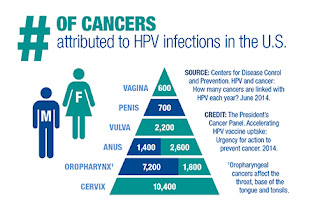Is the Freshman 15 Real?
We’ve all heard of the notorious
freshman 15 prior to college. Whether we’ve heard it through jokes with our
peers or through movies and other media, it is a phenomenon that has been
undeniably acknowledged by our culture. So the question arises; is the freshman
15 a true experience or is it simply a fictitious claim? One wide-scale study
conducted at Ohio State University made an attempt to put this question to the
test. Researchers monitored 7,417 young people as they transitioned to their
first year at the university. After the data were collected and analyzed, it
was clear that although a solid trend in weight gain was observed, the 15 pound
aspect was a gross over exaggeration. In fact, the actual figure was closer to
three pounds1. Although it would be fair to consider the “freshman
15” to be a myth based on this study, it is important to note that a three
pound weight gain over the course of a year is still 6x higher than that of the
general population. The very existence of this myth seems to acknowledge that
the transition from high school to college is a big one with new and unique
challenges that can alter the way that individuals were previously living their
lives.
When going into the first year of
college, many individuals are facing choices that they’ve never had to before.
It addition to new found independence, there are also new found
responsibilities, pressures, and stressors. This can be a lot to deal with for
some individuals. When attempting to juggle a jam-packed schedule and tight
budget, many young people find that they are unable to find adequate time or
money for the healthy choices that they would like to make. This is a perfectly
natural thing to encounter. Getting into the groove of what exercise routines
and meal patterns work best for each individual body will take some time.
Luckily, there are also resources available to help. If you’re feeling like you could
use some help with meeting your nutrition goals, free peer nutrition counseling
is available to you. Contact the CSULB Health Resource Center at (562) 985-4609
for more information or to make an appointment.
If you desire a more comprehensive
type of meeting with a health educator, Thrive @ The Beach may be of help to
you. This whole-person approach to health, happiness, and well-being addresses
much more than just nutrition and fitness. During your one-on-one Thrive
appointment, you can discuss different factors that may be affecting your
health, such as stress reduction, sleep quality, time management, and social
support. Contact the Health Resource Center to make an appointment.
If you’re feeling the stress of a
difficult transition and you need a new outlet, try one of our wellness
programs! Yoga, mindfulness meditation, and acupuncture are just a few examples
of the programs that are available now. These services are all available at the
same center as above. Call or visit the Health Resource Center office to find
out more about the new programs we’re offering this semester! The physical
office is located in the Student Health Services building, room 268.
By Clara Chang
Resources:
By Clara Chang
Resources:
1Zagorsky, J. L., & Smith, P. K. (2011). The
Freshman 15: A Critical Time for Obesity Intervention or Media Myth?. Social
Science Quarterly (Wiley-Blackwell), 92(5), 1389-1407.
doi:10.1111/j.1540-6237.2011.00823.x


Comments
Post a Comment